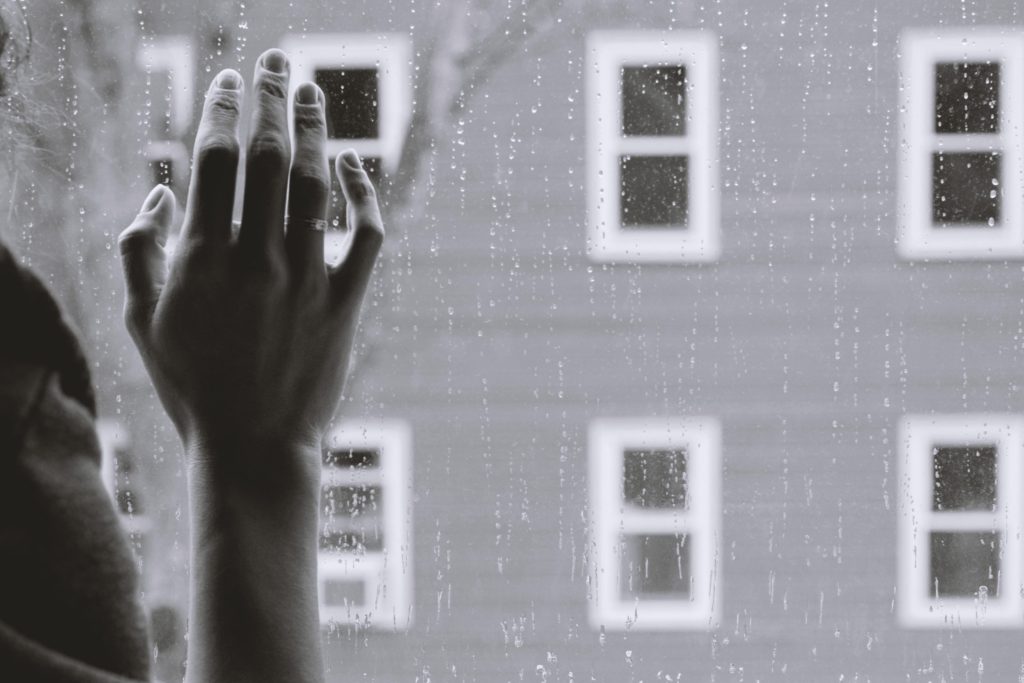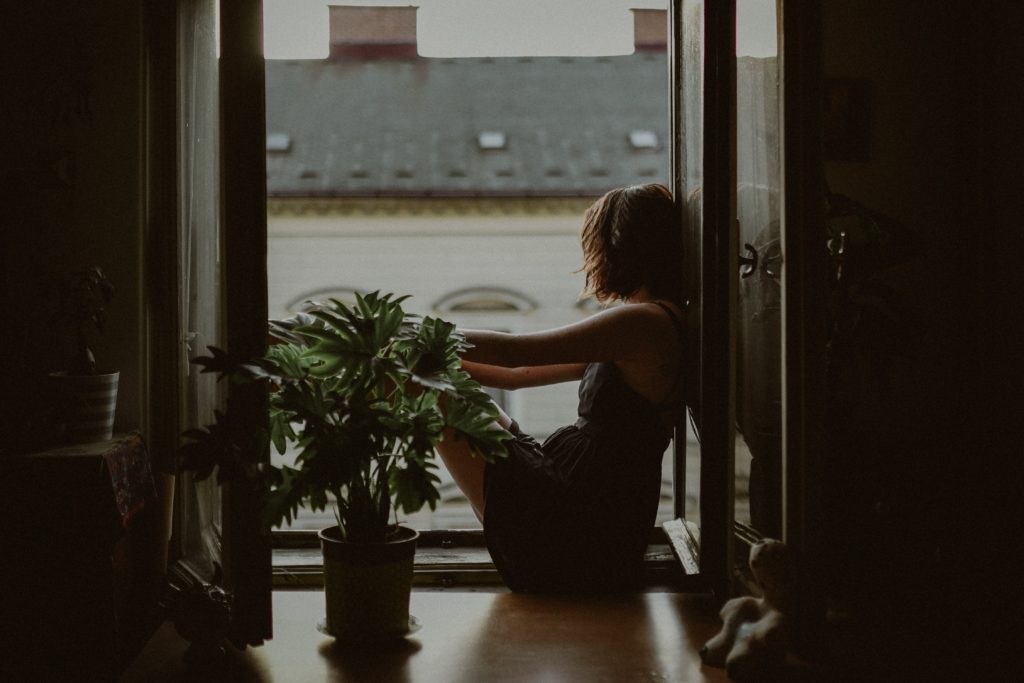

Photo by: Camila Quintero Franco
Every January 1st, otherwise known as New Year’s Day, brings New Year’s ‘resolutions’ or ‘changes’. Most of us consider the first day of the new year as a fresh start to another trip around the sun. New beginnings. However, little did any of us know that 2020 would bring so many unparalleled changes and “new normals”. Leaving many of to figure out how to cope with grief.
Sadly, 2020 has brought much loss such as: the tragic death of a mega NBA star Kobe Bryant and his daughter along with their close friends; the devastation to my home city of Nashville from the tornado in early March; George Floyd’s deplorable death, centering around racial injustice and police brutality, resulting in some violent protests and riots from extremist groups nationwide; Oh! and a little thing called COVID-19, a global pandemic responsible for countless deaths, economic fallouts, and isolated quarantines; etc.
These are all transforming or life-altering events that trigger some sort of grief. I read an article in which the researcher defined grief as the “natural adaptive reaction- a painful but necessary mental recalibration to accommodate a new absence.” Sounds not so fun, huh? But this is an inevitable part of life.
There is no denying 2020, in particular the COVID-19 global pandemic, has the world grieving from loss. Loss of jobs, loss of economic stability, loss of life, loss of normalcy, loss of freedoms, loss of routines, loss of ritual gatherings, loss of human touch or face to face interaction, etc.
I could go on but y’all get it. The loss is real. And if you haven’t been affected by any losses as of late, just wait, this will have long term effects.
No person is immune to experiencing loss. Similar to the certainty that we all will experience death, it is certain we will all experience loss, at some capacity, during our lifetime. Thus, not being able to elude death or loss, means you can’t escape experiencing grief either. These are some of the unpleasant common denominators we all share in life.
Suffering caused by a loss unites us, but the ways we understand or cope with a loss divides us. Grief is unique to the individual. Grief is a process. We may all grieve for the same reason but we won’t all necessarily go about the grieving process the same way. And that’s ok. There is no right or wrong way to grieve. Everyone is just looking for comfort in the midst of the unbearable, uncomfortable pain of grief after a loss.
Each person’s grief is personal and different from anyone else’s grief. Some of us kick into high gear when a crisis or tragedy strike, cooking like an Italian grandmother and planning services- anything to keep us busy and our minds occupied so we don’t have time to grieve or process emotions; Others of us make outlandish comments or impulsive decisions in the heat of our emotional breakdown; Some curl up on the floor or in bed in the fetal position, determined to never rise again; Others become addicts and drown themselves in work, physical fitness, alcohol, drugs, etc. Some of us start non-profits or join organizations with a cause we are newly passionate about; Others of us find our voice and write letters or sign petitions; and some of us move on like nothing happened, acting as if we’re fine, everything’s fine, I’m fine. Just FINE…as long as no one is looking.
Grieving is always a difficult and complicated journey. With death tolls still on the rise around the world. The COVID-19 global pandemic has not only brought “new normals” in the way we live but also “new normals” in the way we die and the mourning process.
Due to the unprecedented nature of this virus, many restrictions have been placed on society, including isolation with the ‘safer at home’ quarantine. With public health and flattening the curve being a #1 priority, COVID-19 also brings heightened emotional responses with feelings of fear and anxiety from all the uncertainties and death surrounding this pandemic. Naturally, this affects our mental health and well-being.
Death is a taboo topic but we all must face it. But the rituals surrounding death tend to make death a little easier to go through because you are mourning together. The truth is life, grief and the death of loved ones are harder to handle when we are isolated and alone. But isolation is a necessary evil when it comes to a making it through a global pandemic.
The problem with loved ones passing, regardless of the cause, during a global pandemic, is we can not “properly” mourn or grieve in the manner we have always been accustomed to, including memorial ceremonies or funerals.
We are not allowed to be physically present with our loved ones when they pass and have to say our goodbyes using creative means, like Facetime or Skype. Which is heartbreaking and scary for any dying person and their loved ones.
Plus, this not only places a whole new emotional burden on the essential workers like nurses and doctors, but it denies families the normal course of mourning, creating much inner conflict or turmoil.

Photo by: Kristina Tripkovic
Despite the common misconception, funerals are not rites of closure. Funerals are more rites of passage to initiate us on a healthy path in the grievance process. A ceremony, to honor the person who has died, provides structure that helps hold us up during the impossible task of embarking on the grief journey.
Funerals serve a purpose by allowing us a designated place for our grief. They help us to acknowledge the reality of death, give and receive support from others, express our inner grief out loud, celebrate and ponder life as well as begin to think about what life moving forward will be like. Funerals bring us together just like other marked ceremonies in life.
But, unfortunately, these historic rituals of mourning are not possible when we are in the midst of a global health crisis. However, it doesn’t mean we can’t find other ways to aid us in the grieving process. We must find alternative ways to grieve losing a love one in order to be resilient. I firmly believe for our well-being we have to find ways in which we are able to deeply, authentically and openly mourn our loss(es).

Any outward form of mourning has proven to help us reconcile grief. In the face of tragedy, shutting down and isolating ourselves even more than quarantine already has done, is a dangerous mental game to play. So here are some suggestions of ways to mourn while appeasing the social distancing guidelines during the COVID-19 pandemic:
How to Cope with Grief
- Talk to good listeners. People who don’t feel they have to “fix” the situation but can just listen.
- Participate in online support groups. This is a way to be “surrounded” by a community of others who understand what you are going through and can have more empathy for your situation. in the face of tragedy
- Seek unbiased, professional one-on-one advice by seeing a therapist or counselor. This is also a service now available online.
- Let yourself ugly cry. It physically and mentally helps to cry. Schedule cry sessions if needed.
- Journaling. Getting your emotions and feelings on paper can be cathartic.
- Create a memory book or box. This helps to celebrate loved ones and relive nostalgic memories we have shared with those who have died.
- Allow yourself to laugh or talk about other things. Doing this provides distance, perspective and a sense that you aren’t completely at the mercy of grief.
- Find resources or read books on the topic of grief. This is another way to feel empowered and not alone in the grieving process.
- Hold candle light or memorial services of your own. In your home or via platforms like Zoom.

Until you experience grief, either from a loss or a death, it can be a hard thing to wrap your head around. Having a global pandemic strip us of our traditional approach to help with closure and grief is brutally heart wrenching. However, since COVID-19 has modified the way we say goodbye, my hope is we will find the silver lining and think more about modifying the way we say hello; ensuring they are more intentional and meaningful.

Do you have any extra tips on how to cope with grief? Let me know in a comment below!
